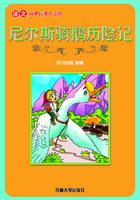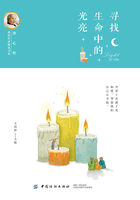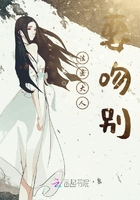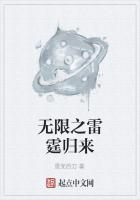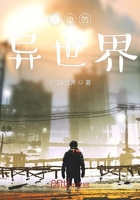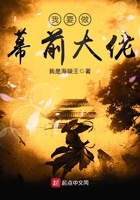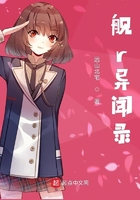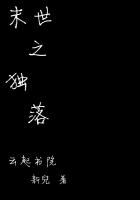THE INDIAN CHIEF
1.DURING the war in America,a company of Indians attacked a small body of the British troops,and defeated them.As the Indians had greatly the advantage in swiftness of foot,and were eager in the pursuit,very few of the British escaped;and those who fell into their hands were treated with a cruelty,of which there are not many examples,even in that country.Two of the Indians came up to a young officer,and attacked him with great fury.As they were armed with battle-axes,he had no hope of escaping.But,just at this crisis,another Indian came up,who was advanced in years,and was armed with a bow and arrows.
2.The old man instantly drew his bow,but after having taken his aim at the officer,he suddenly dropped the point of his arrow,and interposed between him and his pursuers,who were about to cut him to pieces.They retired with respect.The old man then took the officer by the hand,soothed him into confidence by caresses;and having conducted him to his hut,treated him with a kindness which did honor to his professions.
3.He made him less a slave than a companion;taught him the language of the country;and instructed him in the rude arts that are practiced by the inhabitants.They lived together in the most perfect harmony;and the young officer,in the treatment he met with,found nothing to regret,but that sometimes the old man fixed his eyes upon him,and having regarded him for some minutes with a steady and silent attention,burst into tears.
4.In the mean time the spring returned,and the Indians again took the field.The old man,who was still vigorous,and able to bear the fatigues of war,set out with them,and was accompanied by his prisoner.They marched above two hundred leagues across the forest,and came at length to a plain,where the British forces were encamped.The old man showed his prisoner the tents at a distance.“There,”says he,“are thy countrymen.There is the enemy who wait to give us battle.Remember that I have saved thy life,that I have taught thee to conduct a canoe,to arm thyself with a bow and arrows,and to surprise the beaver in the forest.What wast thou when I first took thee to my hut?Thy hands were those of an infant.They could neither procure thee sustenance nor safety.Thy soul was in utter darkness.Thou wast ignorant of every thing.Thou owest all things to me.Wilt thou then go over to thy nation,and take up the hatchet against us?”
5.The officer replied,that he would rather lose his own life than take away that of his deliverer.The Indian then bending down his head,and covering his face with both his hands,stood some time silent.Then looking earnestly at his prisoner,he said in a voice that was at once softened by tenderness and grief,“Hast thou a father?”“My father,”said the young man,“was alive when I left my country.”“Alas!”said the Indian,“how wretched must he be!”He paused a moment,and then added,“Dost thou know that I have been a father?I am a father no more.I saw my son fall in battle.He fought at my side.I saw him expire!He was covered with wounds,when he fell dead at my feet!”
6.He pronounced these words with the utmost vehemence.His body shook with a universal tremor.He was almost stifled with sighs,which he would not suffer to escape him.There was a keen restlessness in his eyes,but no tears flowed to his relief.At length,he became calm by degrees;and turning toward the east,where the sun had .just risen,“Dost thou see,”said he to the young officer,“the beauty of that sky,which sparkles with pre-vailing day?and hast thou pleasure in thesight?”“Yes,”replied the young officer,“I have pleasure in the beauty of so fine a sky.”“I have none!”said the Indian,and his tears then found their way.
7.A few minutes after,he showed the young man a magnolia in full bloom.“Dost thou see that beautiful tree?”said he,“and dost thou look upon it with pleasure?”“Yes,”replied the officer,“I look with pleasure upon that beautiful tree.”“I have no longer any pleasure in looking upon it,”said the Indian,hastily;and immediately added,“Go,return to thy father,that he may still have pleasure,when he sees the sun rise in the morning,and the trees blossom in the spring!”
中文阅读
1.在美国印第安人与白人的战争期间,一队印第安人袭击了一小股英国军队并打败了他们。由于印第安人跑得比英国人快,而且他们追逐的心情非常迫切,所以,几乎没有英国人逃脱。这些落入印第安人手里的白人都受到了残酷的对待。这样的惨状在这个国家里几乎也找不到先例。两个印第安人抓到了一个年轻军官,怒不可遏地袭击了他。他们佩带着战斧,年轻人根本没有机会逃走。正在这个危急时刻,一个上了年纪的印第安人走了过来,他身上佩带着弓和箭。
2.老人马上抽出了箭瞄准了他,而后却忽然放下箭,挡在他和那两个追逐他的印第安人中间,因为那两个人正准备把他大卸八块。这时他们恭恭敬敬地退了下去。老人走过来,握着年轻人的手,为了让他恢复自信,老人抚摸他安慰他,领着年轻人到他的小屋,友好地招待他,此举为老人的职业增了光。
3.老人并没有将他当做奴隶,而是当成朋友对待。老人教他当地的语言,教他当地人粗糙的技艺。他们完美和谐地在一起生活着。年轻的军官在得到这样的待遇后,没有感到丝毫遗憾。只是有时,老人会盯着年轻人看,专注而安静地看几分钟后,会突然潸然泪下。
4.春天又来了。在那短暂的春日里,印第安人又开始战斗了。老人依旧精神饱满,能扛得住战争的疲劳。他带着他的囚犯和大家一起出发。他们行军二百里格,穿过森林,最终来到一块平原地带,而这里已经有英军在驻扎。老人让年轻人看了看远处那些营帐。“那里住着你们国家的人,”老人说,“那里住着要和我们交战的敌人。你要记着,是我救了你一命,是我教会你学会划独木舟、射箭、打猎,还有俘获森林里的山狸。当我第一次把你带到我的小屋里的时候你是什么?你的手就像婴儿的手,你的手既不能让你获得食物,也不能保证你的安全。你的灵魂也处在完完全全的黑暗里。你什么都不懂。你现在所拥有的一切都是我给的。然后,你是不是要回到你的国家,拿起斧子来对付我们呢?”
5.年轻的军官回答说,他宁愿丢了自己的命也绝对不会去要上帝的使者的命。老人低下头,双手捂着脸,静静地站了一会儿。之后,他诚挚地看着他的俘虏,用温柔而又悲伤的口吻对他说:“你有父亲吗?”年轻人说:“当我离开我的国家时,我父亲还健在。”“哦!”老人说,“那他是多么的不幸啊!”老人顿了顿,又继续说,“你知道吗?我原来也是一位父亲,但现在不是了。我看到我的孩子在战争中倒下。他曾经在我身边战斗过,我却亲眼看见他死了!他倒在我脚下的时候,浑身是伤。”
6.老人满腔怒火地说着这些话,身体颤抖着,这样的颤抖是人类共有的行为。他不断唉声叹气,难以自控,几乎窒息了。他的眼中充满了热切的不安,却没有流泪,无法释怀。最终,老人慢慢地平静下来,转向东方,太阳刚刚升起的地方,对年轻的军官说:“你能看到这美丽的天空,获胜的阳光闪耀着光芒,你喜欢这样的景致吗?”年轻人回答:“是的,我很喜欢这么美丽的天空。”“可我却一点儿也不喜欢!”老人说着,眼泪终于夺眶而出。
7.几分钟后,老人让年轻人看了一株盛开的木兰,说:“你看到那棵美丽的树了吧?看到它你心情会愉快吗?”年轻人说:“是的,我看到它心情十分愉快。”“可我却没有任何的愉悦。”老人急忙说着,又马上补充道,“走吧,回到你父亲那里去吧。这样的话,当他在春天看到清晨初升的太阳,树上盛开的鲜花时,还能有着愉悦的心情。”
THE LITTLE WOMAN

